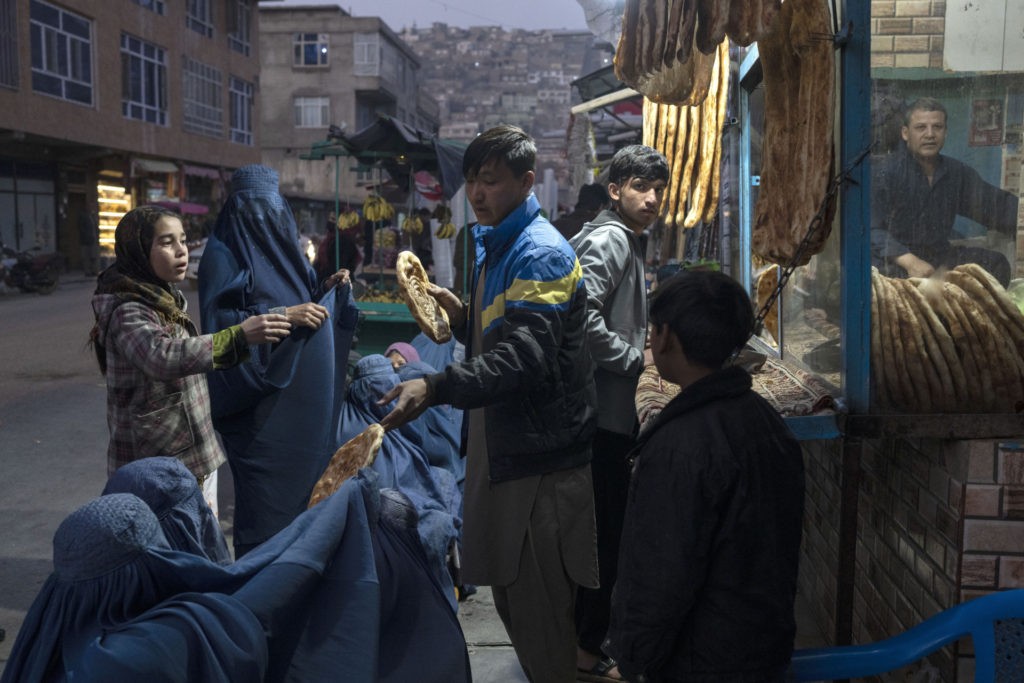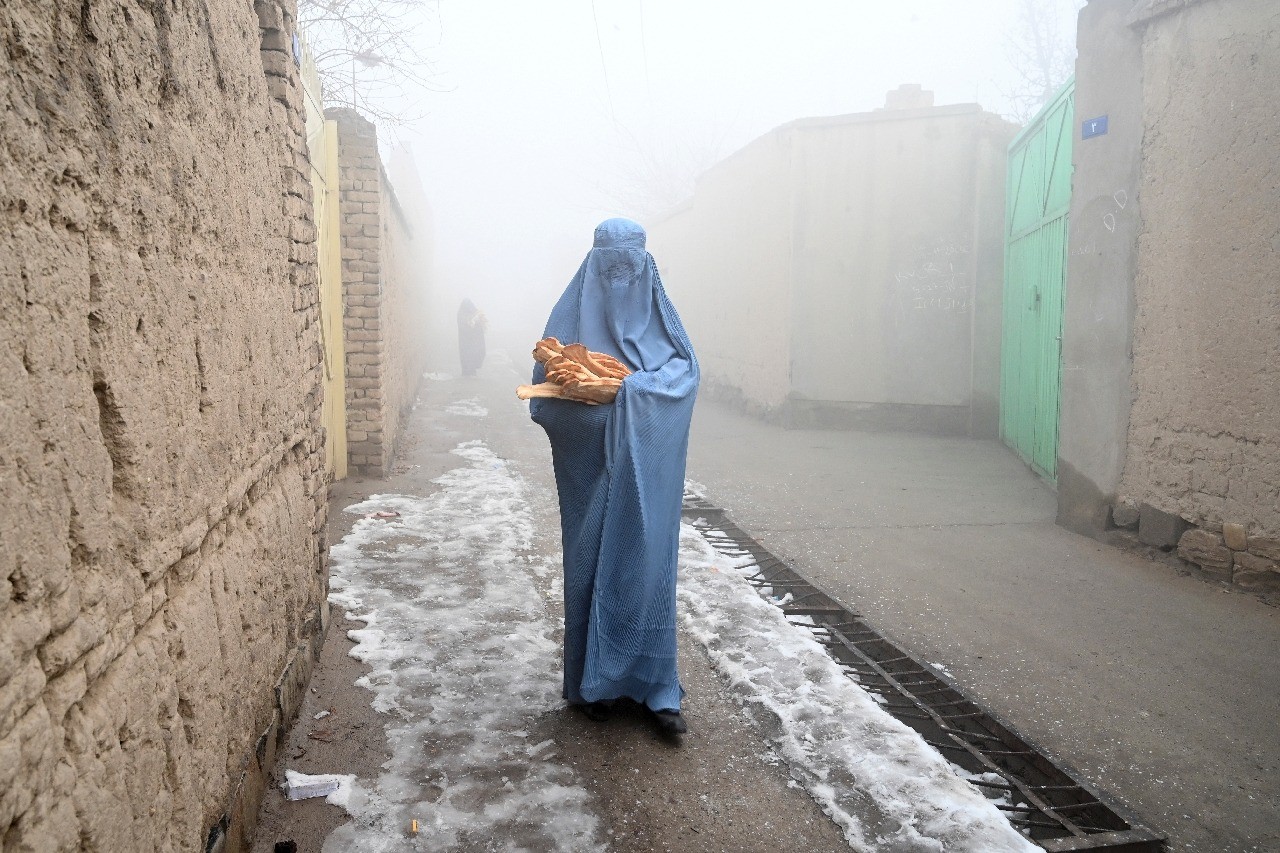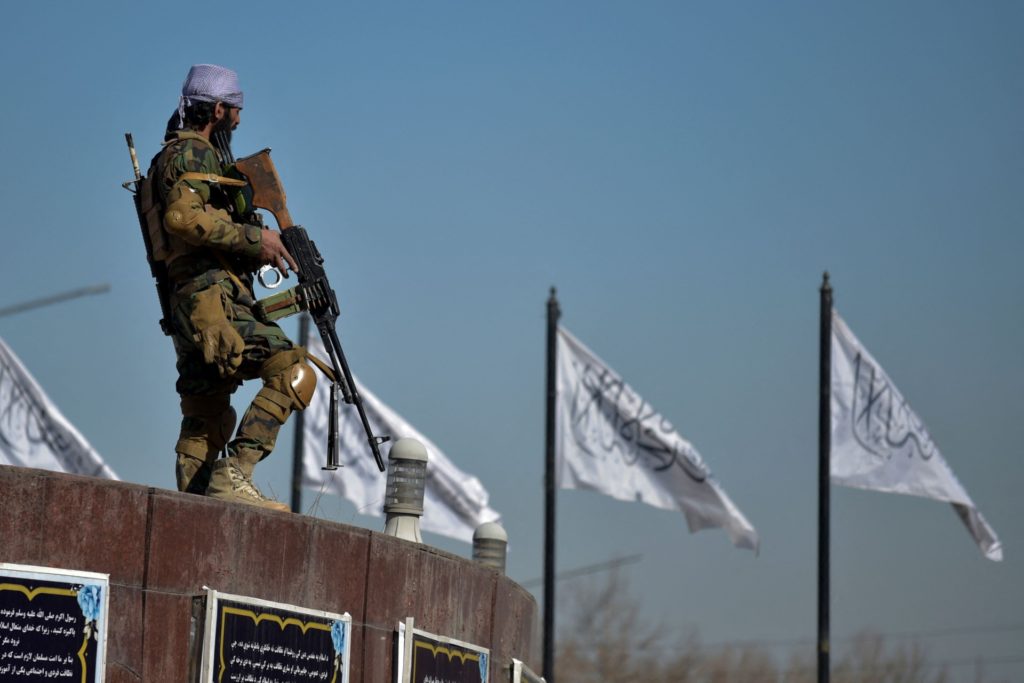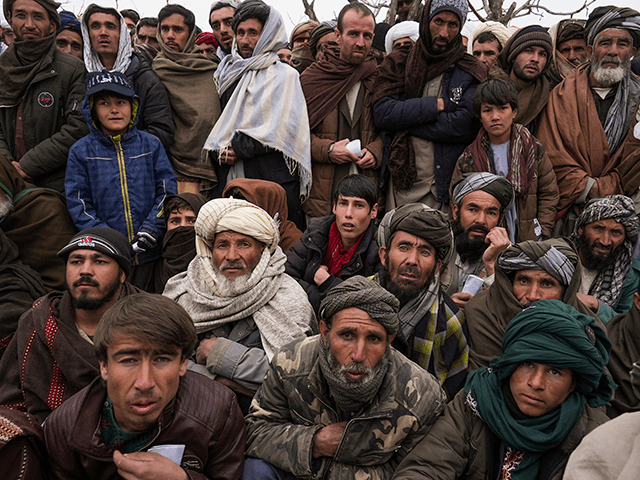Humanitarian activists and U.N. officials are calling for sanctions against the Taliban to be eased so aid can be rendered to the sick, starving, and soon-to-be freezing Afghan people – but Radio Free Europe (RFE) on Tuesday documented how the Taliban is looting aid programs to pay its officials, and even withholding food to force Afghan civilians into slavery.
RFE interviewed a Kabul day laborer named Omaruddin who explained the Taliban set up a “food-for-work” program in October that “requires recipients to do manual labor on public-works projects to receive humanitarian aid.” Even that atrocious bargain is only available to people who have good connections to the Taliban.
“Nobody hires us. The Taliban only take people that they know. You cannot find a job unless you know someone. They will not give you anything even if you work hard. There is no way that they are going to give out something for free,” said Omaruddin, who lacks such connections himself, so his twenty appeals to enter the “food-for-work” program have been ignored.
Several other laborers told similar stories of being denied humanitarian aid by the Taliban, even when they offered to work for it.
“There is no business at all. The aid is only given to those who have links or relationships with the Taliban. It does not go to the poor,” agreed another day laborer named Ghazni Gul.

Afghan Foreign Minister Amir Khan Muttaqi meets the media outside the Soria Moria hotel in Oslo, Norway, Monday, Jan. 24, 2022. (Terje Pedersen/NTB scanpix via AP)
“Now, in what the Taliban claims is an expansion of its ‘food for work’ program, the cash-strapped regime has begun to use foreign wheat aid to pay the salaries of public sector workers,” RFE added, explaining how the Taliban has weaponized shipments of grain donated by first India, and then Pakistan, China, Uzbekistan, and Kazakhstan.

A man distributes bread to Burka-wearing Afghan women outside a bakery in Kabul, Afghanistan, Thursday, Dec, 2, 2021. (AP Photo/Petros Giannakouris)
These arrangements are unsurprisingly harsh on Afghan women, especially widows lacking a man to provide for them, since the Taliban does not even allow women to work as indentured servants in its foreign-aid-fueled slavery program.

Afghanistan is in the grip of a humanitarian disaster, worsened by the Taliban takeover of the country. (Wakil KOHSAR/AFP)
The Taliban issued a perfunctory denial that it only allows its supporters to collect humanitarian aid, but the food-for-work programs are no secret, and the “Islamic Emirate of Afghanistan” apparently sees no need to conceal its looting of humanitarian programs to pay government employees.

A Taliban fighter stands guard before to start a women protest in support of the Taliban regime at the Ahmad Shah Massoud square in front of the U.S. embassy in Kabul on January 26, 2022. (WAKIL KOHSAR/AFP via Getty Images)
The terrible conundrum facing humanitarian agencies is that Afghanistan is clearly in bad shape after the brutal Taliban takeover, and the encroaching winter is likely to make widespread sickness, poverty, and hunger even worse – but most of these agencies agree that rendering effective aid to the Afghan people will require lifting some sanctions on the Taliban, as well as pumping in more cash that can be misappropriated by the extremists.
Even before Taliban graft and mismanagement is factored in, Afghanistan’s economy under the U.S. occupation had become highly dependent on foreign support, so 80 percent of its government budget vanished after the Taliban took over, eliminating funding for hospitals, schools, and industry.
The International Rescue Committee (IRC) in early January blamed the “economic tourniquet applied to Afghanistan” for skyrocketing food prices and growing malnutrition among Afghan children. The United Nations wants another $4.4 billion in funding for Afghan aid, the largest humanitarian appeal it has ever made. The U.S. made another $780 million in aid commitments after President Joe Biden’s disastrous withdrawal from Afghanistan.
U.N. Secretary-General Antonio Guterres is among the officials who argue increased aid funding will not do enough to help unless financial sanctions on Afghanistan are lifted so its banking system can be restarted, making it possible to buy supplies locally and pay aid staffers.
Many of these international officials argue the United States must lead the way on lifting sanctions, because other aid donors are reluctant to make major commitments while American sanctions remain. RFE’s story calls into question the assurances given by these officials that humanitarian money and supplies can be kept out of extremist hands.

COMMENTS
Please let us know if you're having issues with commenting.